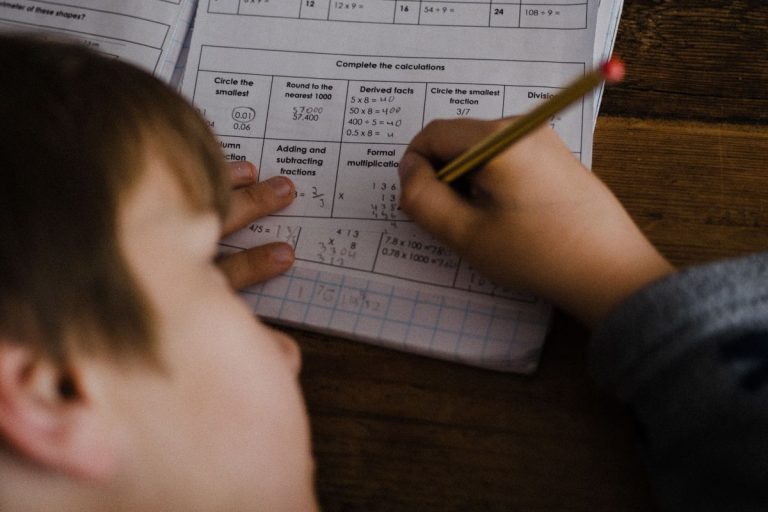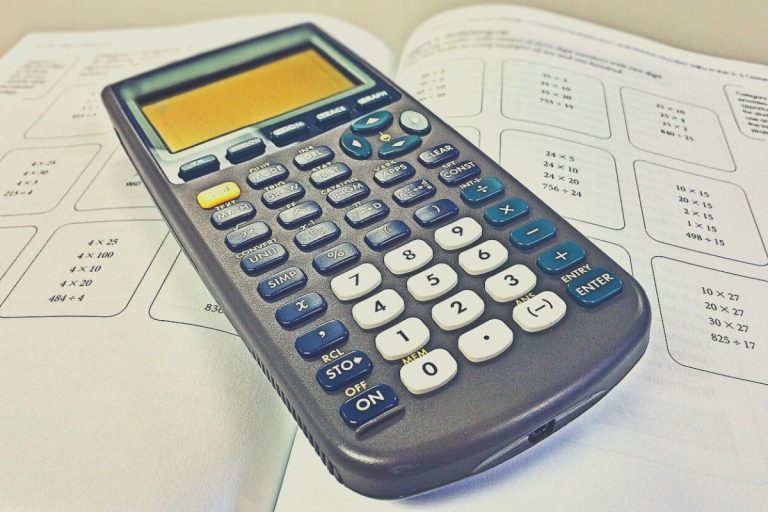Preparing for your all-important GCSE maths exams is never a fun experience! In fact, recent studies have shown that up to 15% of GCSE students fall into the category of being “highly test anxious”.
Whether you are fully confident in your maths abilities or not, preparing for your exams can be a highly stressful experience. However, knowing how exactly to revise can set you up for overall success.
Revising your GCSE maths before your exams will help you gain more confidence, continue to expand your knowledge, and improve your ability to answer the questions clearly and thoroughly at hand.
Today, we explore our top maths revision tips along with answering your frequently asked GCSE maths questions.
Our GCSE Maths Revision Tips
Ultimately, revision demonstrates your understanding of maths. Without revising, you could seriously jeopardise your chances of passing your exams.
Let’s dive into our top tips for revising.
Make a plan
Creating a well-thought-out schedule should be at the top of your to-do list! There is no use in saying that you’re going to study without a calculated plan of action. Here’s a list of things you should consider when planning your schedule:
- Determine how much time you want to dedicate to studying: How many hours can you commit to? Which days are you available to study? Do you have strict deadlines that you need to consider?
- Prioritise topics: This is especially important if you tend to struggle with a certain maths subject. It’s important to allocate extra time for topics you need to improve upon. For example, Monday evening could be dedicated to Calculus, Tuesday could be Geometry, and so on.
- Stay flexible: Don’t burn yourself out! Stay flexible with studying and allow yourself time for a well-deserved rest. Doing too much is a sure-fire way to set yourself up for failure.
- Use digital tools: There are plenty of online tools and resources available to help you. Creating an online calendar is a great way to keep on top of your study days. Additionally, the internet is filled with information dedicated to maths topics particularly if there is a subject you aren’t quite sure about.
Practice Past Papers
It’s true what they say: Practice makes perfect!
This is especially true for your maths exam. Typically, you will be supplied with maths past papers throughout the year for your studies. These papers give you a taste of the real exam therefore it’s important that you familiarise yourself with them.
Completing mock past papers will also give you an indication of which topics you need to improve upon. For example, if you find yourself consistently answering incorrectly within a certain area, you should look to spend extra time practicing this.
Additionally, past papers are a great way to test your time management skills! Finishing your papers within the set time? Great work! However, if you are failing to complete the paper on time, we recommend you continue to practice.
Identify weak areas
Even the brightest students have weak areas! Especially when it comes to GCSE maths.
While some students pick up maths faster than others, it’s completely natural to struggle with certain maths topics. Your weak areas can be clearly identified throughout your studies and on completion of mock past papers, so it’s important to dedicate extra time to improve on your weaknesses.
This leads us nicely to our next tip.
Use a tutor to help with revision
Using a tutor to help with revision should be considered particularly if you are struggling to pick up the concept of maths and/or certain topics.
There is zero shame in reaching out for help during your revision and exam preparation. In fact, with a maths tutor, you’re ensuring that you’re doing everything you can to achieve the best possible outcome. If you are looking for a maths tutor, find out more information here.
Not only will a tutor help improve your overall confidence, but they will also help you through one-to-one focussed sessions. Based on your needs and current abilities, a tutor will help put a study schedule in place often with a focus on the topics you are struggling with.
Additionally, your teachers are also there to help you. Reaching out to them is a great way to catch them on their own without the distraction of a busy classroom.
GCSE Maths FAQS
How to revise for GCSE maths higher?
If you’re stuck on how to kick-start your revision for your GCSE higher maths exam, we’re here to help!
Higher maths can feel a little daunting. After all, the questions you will face will inevitably be more difficult than the foundation questions. It’s important, however, not to doubt your capabilities! You wouldn’t be sitting higher maths if your teachers did not believe you had the skills and knowledge to do so.
Let’s dive into some of our top tips:
- The best way to learn is to practice. We recommend that you immerse yourself in as many maths topics and questions as possible.
- Utilise your mock past papers! A great way to prepare for your exams is by practicing your papers. This will give you an overall feel for how your maths exam will go on the day.
- Identify weak spots. And then practice some more! Dedicate special time for any subjects you feel you could improve on.
- Make sure your findings/working are clear and thorough. Did you know that ⅓ of your exam results are based on your workings?
- Hire a tutor if you need to!
- Be realistic. We recommend that you revise little and often to improve your overall focus. Do not burn yourself out and stay realistic with the amount of time you dedicate.
How to revise for GCSE maths foundation?
Revising for the GCSE maths foundation is no different from revising for your higher maths. Regardless of which level you are revising for, to ensure ultimate success, you must commit yourself to study.
While it’s completely natural to become distracted in our digital world, we recommend that you put your phone away during your revision time. If this is not possible, put your phone in do not disturb mode and try to refrain from checking your messages and scrolling on TikTok!
Revising is a test of your determination and discipline. If you can master this, you will be sure to set yourself up for success and ace your exams.




